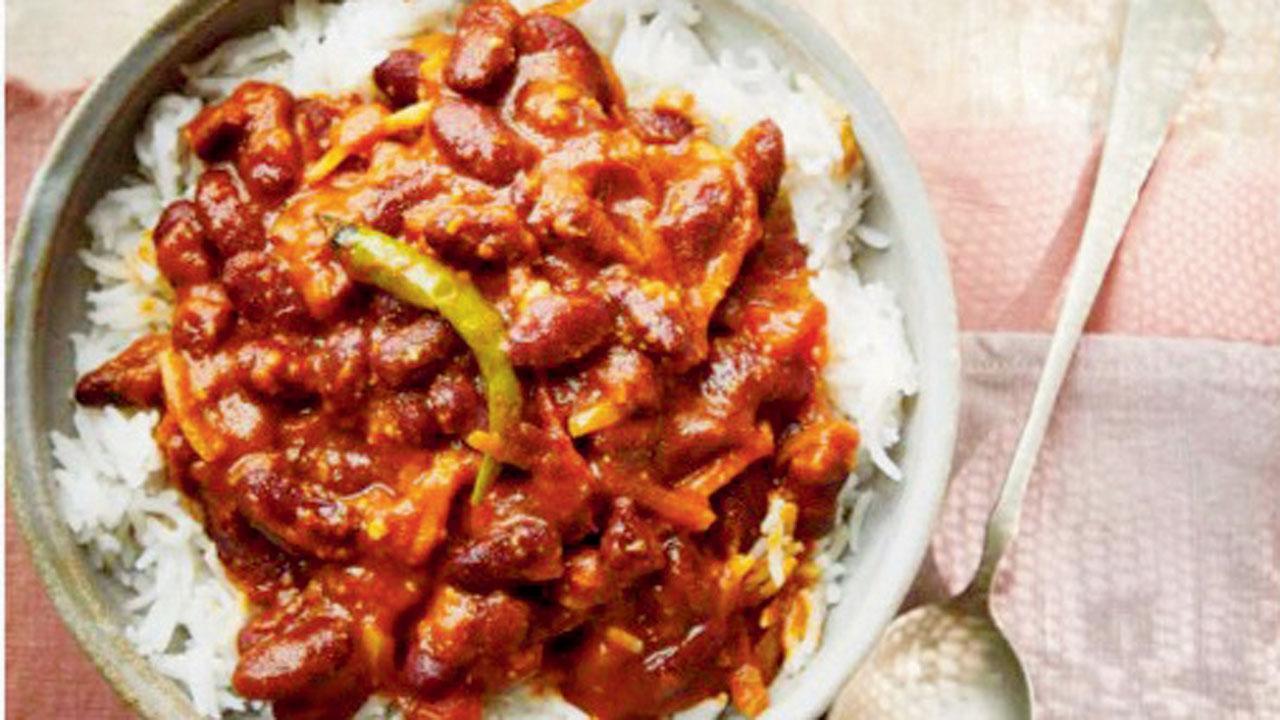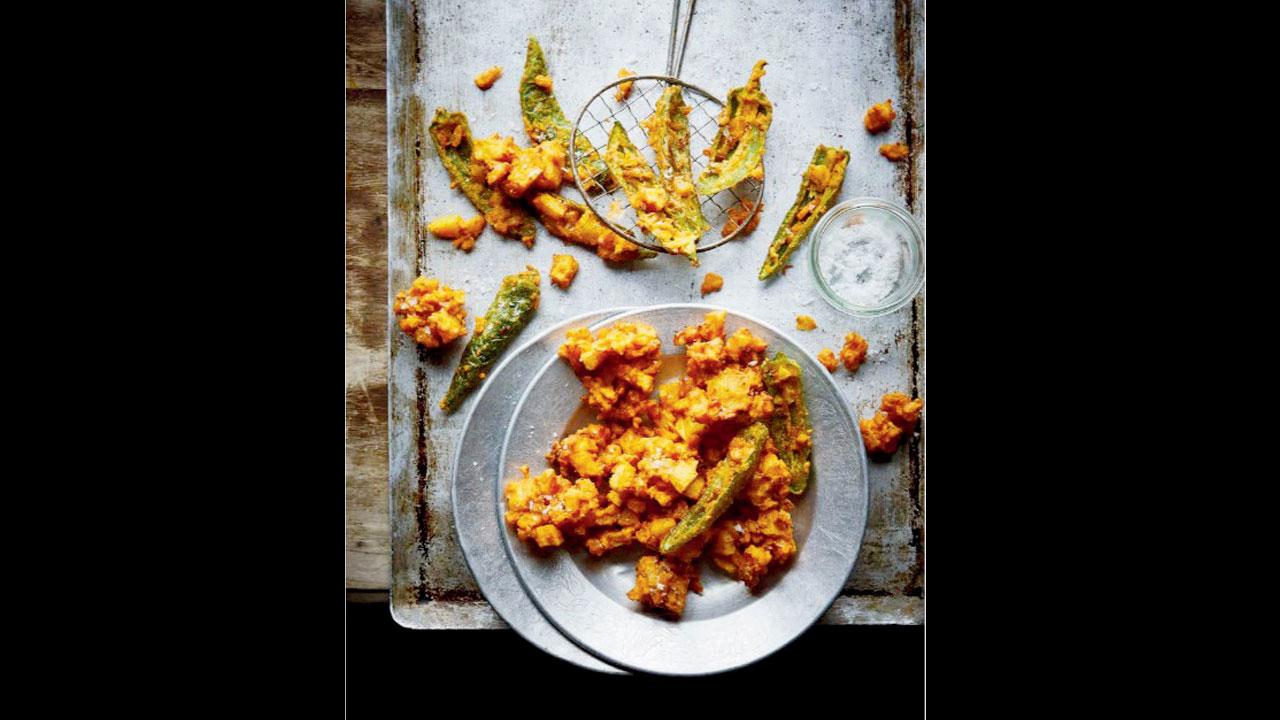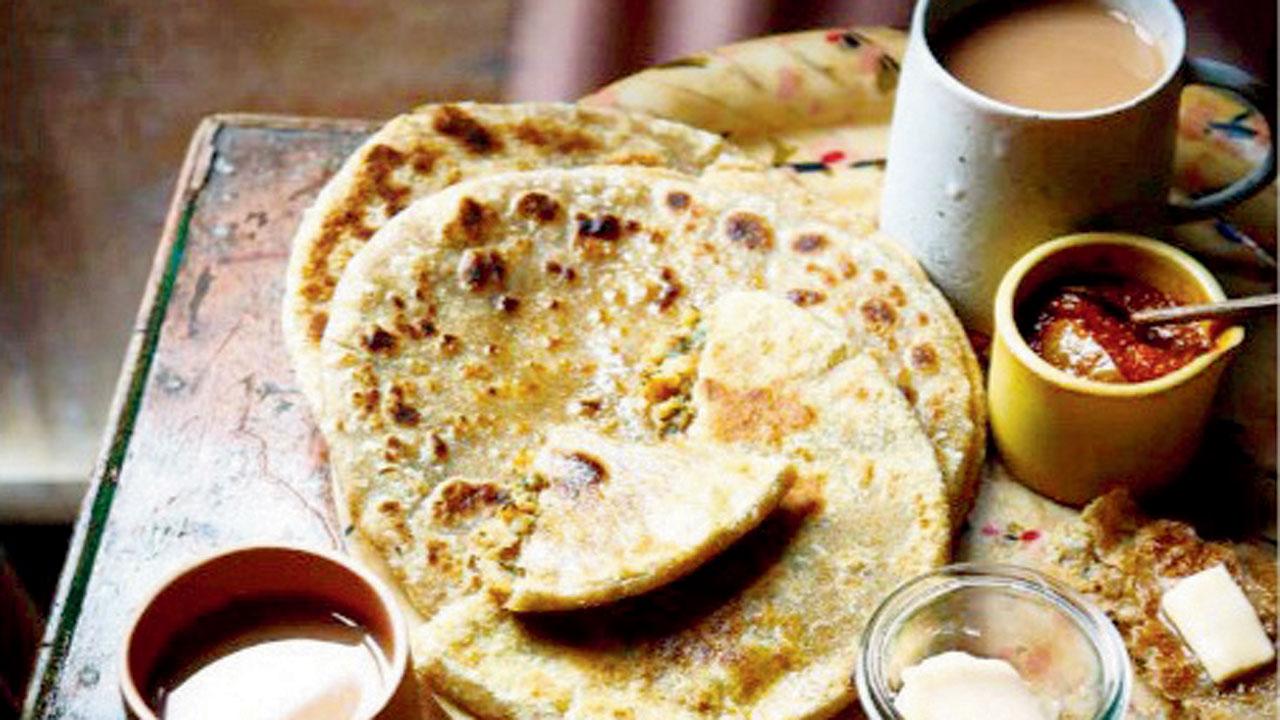London chef and restaurateur Rohit Ghai returns to his Punjabi roots for his first cookbook on Indian vegetarian and vegan dishes, selecting tasty yet simple items, with techniques that can replicated by home cooks

Roti and Chawal
One of my mother’s favourite sayings is, ‘If you cook with your heart and soul, you don’t need special ingredients,’” writes Michelin-starred chef and restaurateur Rohit Ghai in his new book Tarkari: Vegetarian and Vegan Indian Dishes with Heart and Soul (Hachette India). Its title like his food is deeply influenced by his roots and the food prepared by his mother. The youngest in the family, Ghai was fortunate to spend a lot of time with his parents and grew up seeing his mother make the most delectable kidney beans, lentils, dips and pickles. He also picked up the art of making perfect triangular parathas at home when he still quite young, along with other preparations like dal tadka, mint chutney, malpua, and even the cassata kulfi, which now finds place in his fine-dining menus. It was also his mother’s habit of making garam masala with a mortar and pestle rather than using an electric grinder or buying pre-ground spices that showed him how to retain the flavours of the spices in this way, Ghai adopting the same practice eventually for his restaurants. “That’s your USP, you simply can’t get those flavours at the market,” he tells us over a video call. Fittingly then, his book begins with a section titled The Magic of Spices, where he writes about how he first learned to use spices in his mother’s kitchen and the spice blends that formed the basis of his cooking, like garam masala, ghati masala, common in Maharashtrian dishes and named after the ghats, goda masala for misal pav, Chettinad spice mix and tadka or chhaunk, the technique of frying spices quickly in oil or ghee.
ADVERTISEMENT

Rohit Ghai
Written during the pandemic, Ghai’s first book is designed for home cooks, with simple techniques and preparations for those who are passionate about flavours. “We knew that the approach should be straightforward. If I used restaurant terminology or commercial equipment [in the recipes], the book wouldn’t be suited to those who would want to try these dishes at home,” says Ghai. Moreover, after much brainstorming, the decision to focus on vegetarian and vegan dishes was taken. While most of Punjab is not vegetarian, Ghai’s family is and dishes featured in the book were both, a way to celebrate the food he grew up eating while also catering to the vegetarian and vegan palettes in the UK, the numbers of which he says have grown substantially in recent years. “There is a big community of vegetarians in India, so there are a lot of options available there,” says Ghai. “In London, while there are plenty of vegetarian cookbooks available all around, the options are fewer. Here, people like to go to standalone restaurants because they have their own reputation and because people are keen on a unique experience.”

Recipes of items which are some of the chef’s personal favourites went into the cookbook and are categorised under sections like nashta, rassa, chakna, dal and sabzi, roti and chawal, meetha, achar and chutney and Rohit’s feasting menus. Pics Courtesy/Hachette India
Recipes of items which are some of the chef’s personal favourites went into the cookbook and are categorised under sections like nashta, rassa, chakna, dal and sabzi, roti and chawal, meetha, achar and chutney and Rohit’s feasting menus based on the idea of shared family meals. Food from his childhood, including scrumptious street food graces the pages with recipes for aloo paratha, bread pakora, Chandni Chowk ki aloo tikki, bedai bhaji, a popular Delhi breakfast dish of crisp fried masala breads stuffed with lentils and served with a coriander, black pepper and potato curry, lotus root kofta, Malabar cauliflower made with Malabar black peppercorns, malpuas fried in ghee and dipped in sugar syrup, and the chef’s preferred version of anjeer kheer or rice pudding.
While authenticity of flavours has been essential to Ghai, he says he likes experimenting with presentation and execution. Indian desserts, he says, are fairly straightforward to look at and their presentation demands effort. He cites the example of a dessert he offers merging a gulab jamun, a besan laddoo and shrikhand into the shape of a tart, while not losing any of their individual flavours. At the same time, variety, a blend of textures, and exotic ingredients are, he believes, what make his vegetarian food unique with the seven-course tasting menus in his restaurants featuring items like broccoli, morel mushrooms and dried gucci. At Manthan, the restaurant he opened last month in the upscale neighbourhood of London’s Mayfair, the focus again is on vegetarian dishes with items like the Rajasthan-inspired pyaz ki kachori, aloo paratha and dahi ke kabab with plum on the menu. Ghai is also planning on an opening in India soon, along with those in Dubai, Doha and Oman. In spite of his many successes on the London restaurant scene which include Kutir and street food diner KoolCha, the title of author, he says, has been a long-nurtured dream. There will be another book, he promises, this time on his non-vegetarian offerings.

Bedai bhaji
Ingredients
For the bedai (stuffed poori)
250g wheat flour
2 tablespoons semolina (sooji)
1 tablespoon ghee or oil
60g urad dal (split black lentils), soaked in cold water for
30 minutes, then drained
1 tablespoon fennel seeds
1⁄2 tablespoon ground coriander
1⁄2 teaspoon garam masala
1⁄4 teaspoon ground black pepper
A pinch of salt
Oil for deep-frying
For the subzi (curry)
2 tablespoons oil
1-2 bay leaves
4-5 cloves
2.5 cm piece of cinnamon stick
4-6 whole black peppercorns
1 teaspoon cumin seeds
A pinch of asafoetida
2 large potatoes, peeled, boiled and mashed coarsely by hand
1⁄2 teaspoon red chilli powder
1 tablespoon ground coriander
1 teaspoon garam masala
1 tablespoon amchur (dried mango powder)
50g coriander leaves, blended to a paste, plus extra leaves to garnish
2-3 green chillies, chopped, to garnish salt
Method
First, make the bedai. Combine the flour and semolina and add the ghee. Mix well and knead to a firm dough, adding a little water if required. Set aside, covered with a damp cloth, for 15 minutes. Grind the soaked urad dal and fennel seeds separately. Mix them together and add the ground coriander, garam masala, black pepper, and salt. Mix thoroughly and set aside. To make the curry, heat the oil in a deep saucepan and when it’s hot, add the bay leaves, cloves, cinnamon stick, black peppercorns and cumin seeds. Add the asafoetida and the potatoes. Stir-fry for a minute, then add 675ml water. Bring to the boil, then cook for 2-3 minutes. Add the red chilli powder, ground coriander, garam masala, dried mango powder and a little salt to taste. Cook for five to seven minutes, adding more water if the consistency is too thick. Turn off the heat, stir in the fresh coriander paste and mix well. Heat the oil to 160 ̊C/320°F for deep-frying, in a medium pan on a low-medium heat. Knead the dough once again and divide it into eight to 10 dumplings. Roll them into rounds and make small pits by pressing with your thumb. Stuff one teaspoon of the urad dal filling into each of the bedai and enclose it with the dough. Using a greased rolling pin, roll them to a thickness similar to a roti and slide them gently into the hot oil. Deep-fry on both sides for two minutes, flipping them over until golden brown, then drain on a plate lined with kitchen paper to remove excess oil. Reheat the potato curry, transfer to a serving bowl and garnish with fresh coriander leaves. Serve with the hot bedai.
 Subscribe today by clicking the link and stay updated with the latest news!" Click here!
Subscribe today by clicking the link and stay updated with the latest news!" Click here!







